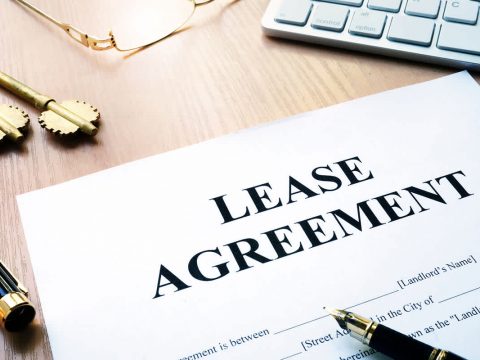- Have any questions?
- (850) 713-4866
- info@shorefrontrestorations.com
What Do You Do With an Inherited House?

The One Good Tenant That Got Away
February 1, 2021
Worried About the Number of Strangers Coming To Your House Viewing?
February 1, 2021Before we go deep into what you could do with an inherited house, it’s essential that we acknowledge the emotional (and even physical) stress that this may bring. It’s never easy to lose someone you love, and depending on the situation, the nostalgia and sentimentality may come from behind and affect the decisions you make moving forward.
Looking for the best way to “take advantage” of a recently deceased family member’s home might not be the most pleasing thing to hear, but it’s definitely a valid concern. We advise that you let the strong feelings (if any) dissipate before making a move.
Problems With an Additional Property
Setting your feelings aside for a bit, the house itself may prove problematic for you. There’s a huge chance that you won’t need it, especially if the estate is an hour away from you… by plane! The additional property also means more maintenance costs, taxes, and insurance to pay. If the house is still under a mortgage, then you’re likely going to settle the debt yourself.
If you are co-owning the property with other family members, this might create a different spectrum of issues as well. We all know that not all family members get along. Depending on your relationship with them, someone not holding up to their end of the bargain could get messy. Some may be inclined to do whatever they want with the house without getting consent from the other owners. An absurd amount of TV soap-operas have taught us that these things could lead to intense drama.
Benefits of Keeping the Property
On the other hand, for those who are still renting, we believe that moving into the house is an opportune moment to be free from monthly rental payments. For homeowners, if additional expenses aren’t a problem, why not keep the house as a vacation house for visiting family members in the area? Relocating to your old home might also be a good idea for retirement.
It may be good to know that you won’t have to pay taxes on the appreciated value of the property when you get it. If you do decide to sell it years later, you’ll only be paying for the appreciated value of the estate from the time you inherited it.
However, if these haven’t convinced you to keep the property, that’s perfectly fine. You wouldn’t be looking for this article if you’ve already decided on keeping the property, right? We’ll have to give you other possible solutions, then.
Turning the House Into Cash
So, with the obvious out of the way, what can you do with an inherited house that you don’t want? One option is selling the house. Your circumstances might not be too far off from avoiding monthly rent. If you’re starting to harbor a deep hatred for your mortgage payments, you could sell the property and use the proceeds to pay it off! You’d either have extra funds for yourself or at least have a significantly smaller debt to pay over a shorter period of time.
We recommend that you get a real estate agent to help you with the selling process. Check out why on a separate article we’ve written here. Do some repairs, renovations, or refurnishing as recommended by your agent, and wait for potential buyers to come over for viewings. With that in mind, do note that you may need to declutter the things and furniture in the house to make it look good for viewers and prevent potential thefts, especially if you wouldn’t be around for the house tour.
Depending on the pricing and other market circumstances, selling the house may take longer than you may have thought, so expect to cover taxes, insurance, utilities, and all the normal expenses of maintaining the home.
If you want to skip over all the labor of getting an agent, renovating, showing the house around, and waiting for months, then calling a reputable real estate investor may be your best bet. You may not sell it at a higher price compared to when renovations have been done already, but you’re able to close a deal much faster! If you want to give it a go, you’re already in the right place. Shorefront Investments has been helping people with housing concerns for years. Give us a call, send us a message, or fill out our “Sell My House” form, and we’ll be in touch as soon as possible!
Please take note that if there are multiple owners of the home, the sum of cash you receive would eventually have to be divided accordingly. Want to make the most out of the property? Here’s another option.
Becoming a Landlord
If “getting rid” of the house sounds heartbreaking to you, then renting it out is a good alternative. The house is still yours while making good use of it. Going back to the example earlier, if you’re thinking of moving after retirement, the option to move into the old family property remains available if you have it rented out for now.
Becoming a landlord also gives you the opportunity to make more money in the long run. If you’re paying for a mortgage right now where you live, the rent you receive could be used to pay it off in full! Who knows? You could those rental payments until you can buy a new house! That’s three properties for you, meaning you have another source of rental income. Even if you’ll split the income with other owners, it’s still going to be more profitable after a few years than selling it upfront.
Before your eyes turn into dollar signs, do understand that many people regret becoming “accidental landlords”. Not all people can bear the responsibilities that landlords have. However, forming a team of specialists can allow you to have a good cash flow with minimum effort. The article mentioned earlier also gives some tips on how to become a hands-free landlord. You may want to take a look and see if it would work for you.
Disclaimer: The statements we’ve provided above are only suggestions. Because small variances may be present due to the differences of regulations from one location to another, it’s always best to consult with an accountant, your local real estate agent, or financial adviser regarding these matters. Doing some research before making a major decision always pays off. If you have further questions, feel free to contact us and we’ll be right there with you.




